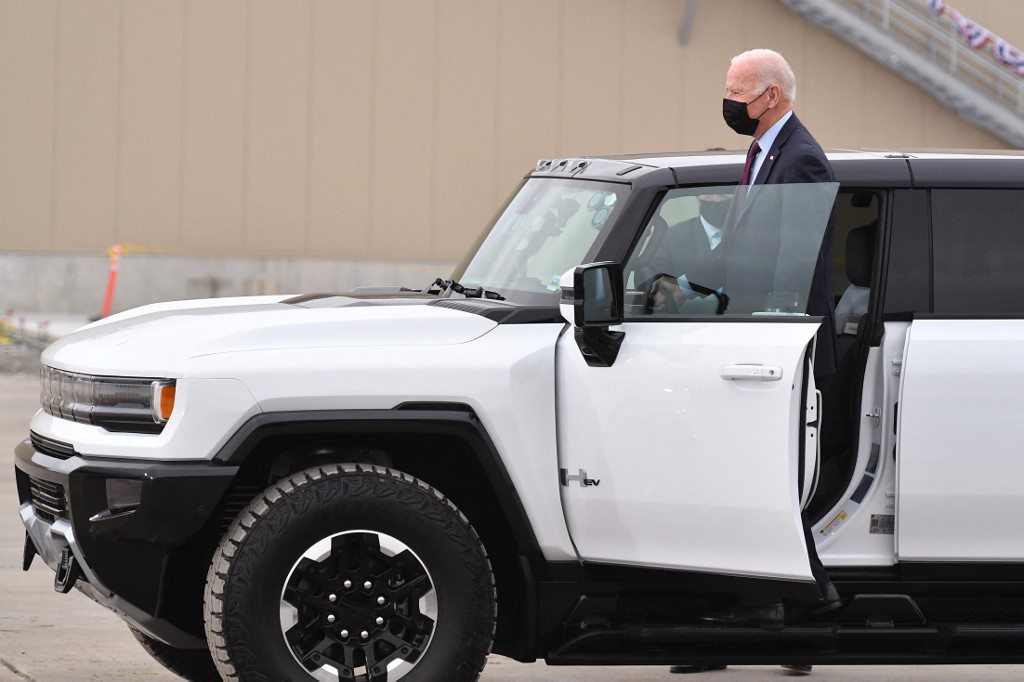CEOs from the world’s largest auto makers including General Motors Co, Ford Motor Co, Chrysler-parent Stellantis NV and Toyota Motor North America have called on US Congress to increase limits on how many EVs made in the US are eligible for tax credits.
Currently, US consumers who buy an EV are eligible for a $7,500 credit on their federal taxes, but that credit does not apply after a manufacturer hits 200,000 vehicles sold. GM and Tesla have already hit that limit, so people who buy EVs made by those companies are no longer eligible for the tax credit.
Toyota said in April it expects to hit that limit by the end of 2022, while Ford had sold nearly 160,000 EVs by the end of 2021 so could hit the 200,000 mark soon.
“We ask that the per-(automaker) cap be removed, with a sunset date set for a time when the EV market is more mature,” the automakers said in the letter.
“Recent economic pressures and supply chain constraints are increasing the cost of manufacturing electrified vehicles which, in turn, puts pressure on the price to consumers.”
The CEOs — GM’s Mary Barra, Ford’s Jim Farley, Stellantis’ Carlos Tavares and Toyota North America CEO Tetsuo Ogawa — said in the joint letter to congressional leaders that they have pledged to invest over $170 billion through 2030 to bolster electric vehicles’ development, production and sale.
ALSO IN AF: Musk, China Rival Clash Over Whether China is World EV Leader
The letter comes amid growing concerns among auto industry executives that the window is closing for US Congress to extend electric vehicle tax credits as Republicans are expected to retake control of one or both houses of Congress next year and are less likely to support the tax credits.
Last week, Ford Executive Chairman Bill Ford made an unannounced trip to Capitol Hill to make the case for extending the tax credit.
In April, Democrat Senator Joe Manchin questioned the need to extend electric vehicle tax credits given strong consumer demand and Chinese production of battery components.
“There’s a waiting list for EVs right now with the fuel price at $4. But they still want us to throw $5,000 or $7,000 or $12,000 credit to buy electric vehicles. It makes no sense to me whatsoever,” Manchin said. “When we can’t produce enough product for the people that want it and we’re still going to pay them to take it — it’s absolutely ludicrous in my mind.”
To illustrate the divide, last year, many Democrats in Congress and President Joe Biden proposed boosting the EV tax credit to $12,500 — including a $4,500 incentive for union-made, US-assembled vehicles.
Manchin earlier opposed the union-only incentive, as did Toyota.
The new letter makes no reference to the union incentive.
Biden also backed a 30% credit for commercial electric vehicles, a $4,000 used EV tax credit and making the current credit refundable at the point of sale.
He also called for phasing out credits for electric vehicles made outside the US, which brought furious opposition from Canada and other car-producing countries.
- Reuters, with editing by Neal McGrath
ALSO SEE:
Tesla Stock Losses Hit 44.6% Since Musk Twitter Saga Began
Tesla’s Removal From S&P ESG Index Sparks Elon Musk Fury
China Fears US Will Use SpaceX to Bring Calamity to World
























